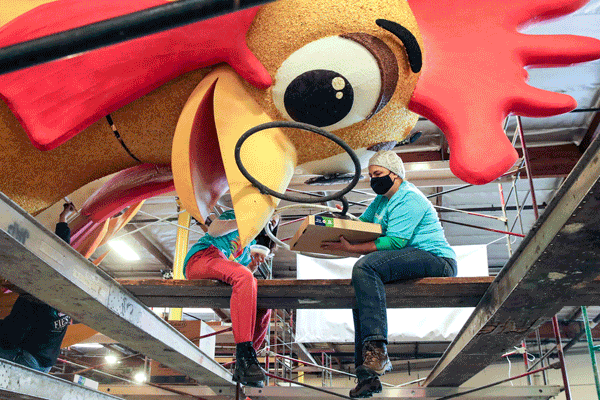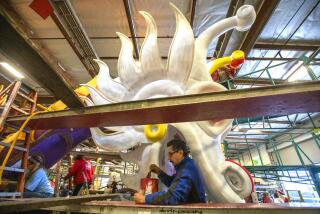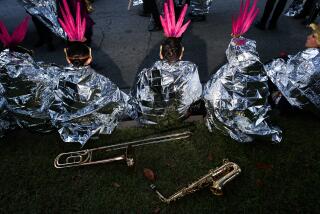Kaiser Permanente pulls front-line medical staff from Rose Parade as coronavirus cases surge

Kaiser Permanente has canceled plans to have front-line medical staffers participate in the Rose Parade, the healthcare organization said Thursday.
Its float, “A Healthier Tomorrow,” will still be featured, according to a statement.
The healthcare system cited Southern California’s recent surge in coronavirus cases, driven in part by the Omicron variant, in its decision.
“We must prioritize the health and safety of our front-line medical staff and ensure we are able to treat patients during this recent surge of COVID-19 cases caused by the Omicron variant,” the statement said.
Organizers are expecting hundreds of thousands of spectators along Pasadena’s Colorado Boulevard and say planning and precautions are in place for the Rose Parade’s return after last year’s event was canceled because of the pandemic.
The Tournament of Roses is requiring the 6,000-plus parade participants, including people on floats, marching band members and equestrians, to provide proof of vaccination or a negative coronavirus test within 72 hours of the event.
Parade spectators ages 12 and up in ticketed areas, including grandstands, will also have to provide proof of vaccination or a negative test within 72 hours. Ticket holders ages 18 and up will have to provide photo identification, and all attendees ages 2 and up in those areas will be required to wear a mask.
But along the rest of the 5.5-mile route, where people can just walk up and watch, vaccination and negative test results will not be checked.
Floats are being decorated, marching bands are tuning up and thousands are bundling up to see the spectacle. But the pandemic lurks in the background.
Kaiser’s announcement comes as Los Angeles County reported one of the highest daily coronavirus case counts of the pandemic.
Thursday’s total was 20,198 cases. Over the last two days, the nation’s most populous county has announced nearly 37,000 new cases.
Overall, California’s reported average daily coronavirus caseload has more than quadrupled in the last two weeks, but far fewer COVID-19 patients are hospitalized than during either of the last two waves, and health officials appear increasingly optimistic that symptoms in cases linked to the highly transmissible Omicron variant may be less severe than other versions of the coronavirus.
More to Read
Sign up for Essential California
The most important California stories and recommendations in your inbox every morning.
You may occasionally receive promotional content from the Los Angeles Times.












